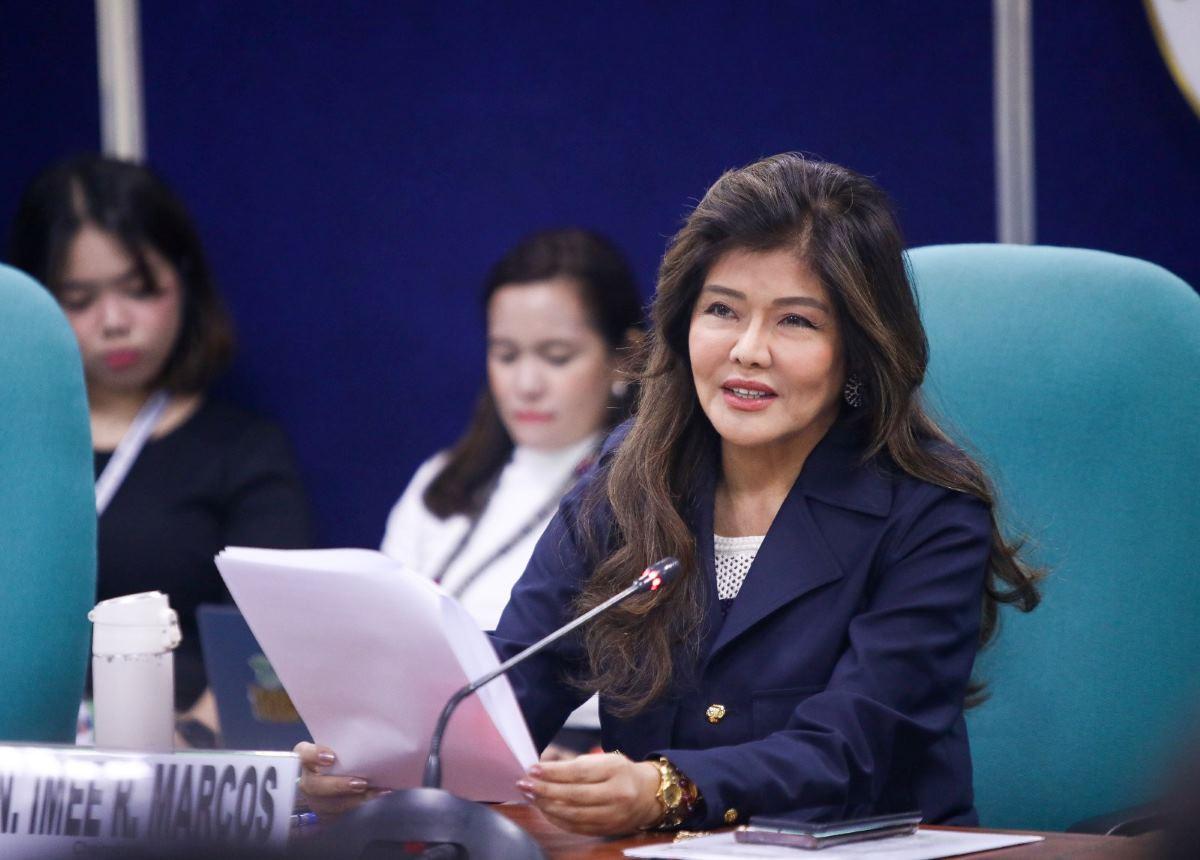Filtered by: Topstories
Senator Imee Marcos said there are no talks within the new nine-member Senate minority bloc about a supposed another change of leadership in the upper chamber.
Marcos said the new minority bloc, which she is a member of, has not brought up any dissatisfaction concerns regarding the leadership of Senate President Vicente “Tito” Sotto III as the shakeup only just happened last week.
“No, nothing. We are not discussing anything like that. What we’re only discussing is staying alive,” the lady senator said.
(There’s nothing like that. The minority bloc is not talking about such. What we’re only discussing is staying alive.)
“If there is indeed such a plan, I don’t know about it as I also didn’t know about the first coup which resulted in us being in minority. I am clueless,” she added.
(If there is indeed such a plan, I don’t know about it as I also didn’t know about the first coup which resulted in us being in minority. I am clueless.)
Last Monday, Senator Francis “Chiz” Escudero as Senate President after the position was declared vacant during the plenary session.
Senate President Pro Tempore Panfilo “Ping” Lacson on Sunday that there will be another leadership change at the Senate, describing the claim as “malevolent, underhanded, foul, and desperate.”
Asked for her thoughts regarding Lacson’s advice that the new minority bloc should not be underestimated because of its numbers, Marcos said, “We have different levels of paranoia.”
She also said that she may no longer chair any committees, including the Foreign Relations panel, now that she is in the minority bloc.
“I’m not a sucker for positions. That’s okay,” Marcos explained.
Senate
The Senate is the upper chamber of the United States Congress, established by the Constitution in 1789. It was designed to provide equal representation for each state, with two senators per state, ensuring a balance of power with the population-based House of Representatives. Historically, it has played a critical role in shaping national legislation, confirming presidential appointments, and ratifying treaties.
Senate minority bloc
The Senate minority bloc refers to the political party or coalition with the second-largest number of seats in a legislative senate. In systems like the United States, it serves as the loyal opposition, providing critique and alternative legislation to the majority party’s agenda. Its history is rooted in the parliamentary tradition of ensuring diverse political representation and maintaining a system of checks and balances within the government.
Senate President Vicente “Tito” Sotto III
This refers to Vicente “Tito” Sotto III, a prominent Filipino politician who served as the Senate President of the Philippines from 2018 to 2022. He is a veteran lawmaker and former entertainer, known for authoring key legislation such as the Anti-Drunk and Drugged Driving Act and the Philippine National ID System Act.
Senator Francis “Chiz” Escudero
This appears to be a misunderstanding. Senator Francis “Chiz” Escudero is a prominent Filipino politician, not a place or cultural site. He has served as a senator and governor in the Philippines and is currently the country’s Secretary of Education. His political career, which began in the late 1990s, is his primary historical significance.
Senate President Pro Tempore Panfilo “Ping” Lacson
This refers to a person, not a place or cultural site. Panfilo “Ping” Lacson is a prominent Filipino politician and former police general who served as a Senator and held the title of Senate President Pro Tempore. His career has been marked by his strong stance on anti-crime and anti-corruption efforts in the Philippines.
Foreign Relations panel
The Foreign Relations panel is not a specific place or cultural site, but a term most commonly referring to a committee or group that discusses international affairs. In the United States, it is the informal name for the Senate Committee on Foreign Relations, a powerful body established in 1816 to lead the Senate’s oversight of international treaties and diplomatic policy. Its work has shaped the nation’s foreign policy and its interactions with the world for over two centuries.






